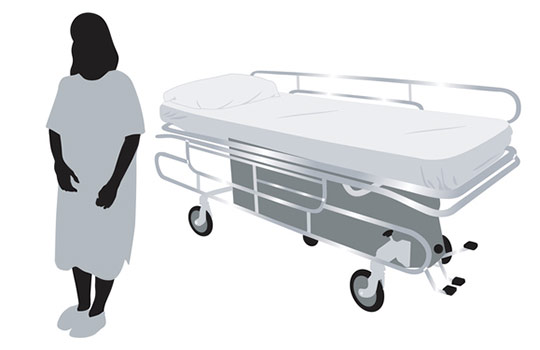 I’ve written before about the domino effect, which describes the multiple groups that are affected when an adverse outcome occurs. Traditionally, the first victims are the patient and their family and friends, the second victims are the staff members, and the third victim is the organisation.
I’ve written before about the domino effect, which describes the multiple groups that are affected when an adverse outcome occurs. Traditionally, the first victims are the patient and their family and friends, the second victims are the staff members, and the third victim is the organisation.
Recently I watched a fantastic talk on Learning from Excellence that reviewed the domino effect, but introduced the concepts of alternative third and fourth victims—with the third victims being the families and friends of healthcare professionals, and the fourth victims being our future patients.
I’ve thought a lot about this since then. I’ve thought of how many times I have brought work home to my family—how many times I come home, at last, to people that I love dearly and that I can’t talk to because of something that has happened at work. It means walking through the door, looking at the children doing their homework, their faces looking up to greet me, and their recognition that it’s not been a good day and that I need support or time out. It seems unfair that given the time my work takes me away from my family, it reaches into this time also.
I’ve also thought about the times I’ve spent with friends where I’ve debriefed them (anonymously, obviously) about an event, and that while this may be verbal diarrhoea to them, as they are kind and caring people, they take it on board. I have wondered if I have given my friends a skewed version of pregnancy, labour, and delivery, but so far no one has complained (at least, not directly to me).
I also thought about the concept of the fourth victim: the future patient. In some ways, I can see how my previous patients will always cast a shadow over my future ones, and not always to my benefit or my patients. For example, when a woman requests to have no prophylaxis in the third stage of labour and my response is based on the last women I cared for who had a postpartum haemorrhage. My preference is for as safe a delivery as possible, but she may want to deliver her baby with minimal interventions, and somehow we need to find a balance. It’s a tightrope that we often navigate in obstetrics, where women are often caught between their wish to have as normal a birth as they can, while also being informed of all their options. When I’m talking to women about different scenarios, behind each of these are the ghosts of women and babies I have cared for, each whispering in my ear. It’s hard not to be biased by negative experiences in the past, especially if patients are actively seeking my clinical opinion.
However, the recollection of these adverse events can also be constructive. Having learnt from a mistake, I will be determined that not only will it not happen again to me, but that others might also learn by my talking about it and including it in teaching. I’m not alone in this: one of the few positive findings in the literature on the second victim is that many midwives and doctors feel that they are better clinicians due to a traumatic incident. So maybe our future patient is not the “fourth victim,” but the “fourth recipient.” It’s something that I will think about a lot more, and I would love to know what others think. Maybe it’s time for another research study?
Many people consider pregnancy and labour to be physiological events, and if an adverse event occurs then it is the fault of those caring for the woman. Others realise that nature has caused an event, but expect early recognition and prompt responses. Those of us working in maternity care know that adverse incidents are uncommon and often unpredictable.
Studies from Sweden and Australia have shown the effect of adverse outcomes on staff working in maternity care, with a significant proportion of staff meeting criteria for post-traumatic stress. More recently, an Irish study showed that 94% of staff had no training in self-care after an intrapartum death. This may not mean that we need another workshop from an external expert on resilience—I think to get to where we are as clinicians, we all must be resilient—but it underlines the importance of being able to discuss and acknowledge that adverse events do occur and that sometimes we have contributed to them. We need to be open about this to learn and to support the whole circle of people affected by adverse events: our patients, ourselves, our families and friends, and the people we will care for in the future.
Mary Higgins is an obstetrician at the National Maternity Hospital, University College Dublin.
Competing interests: None declared.
